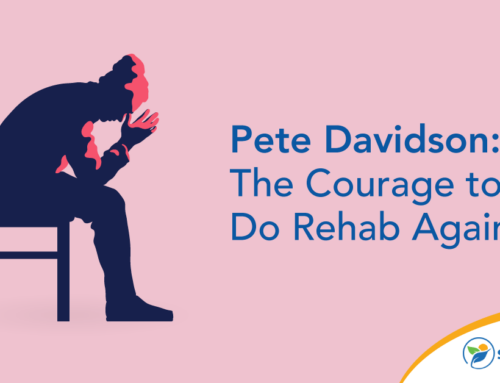If you’ve ever tried to take on a big task, you know how hard it can be to stay motivated when the end goal is a long way off. Whether you’re trying to lose weight, stop smoking, train for a marathon or learn a new language, breaking down a big challenge into smaller milestones and setting realistic goals can make things seem more achievable.
Realistic Expectations Keep You Motivated
Goal setting is a good way to challenge yourself, both on the job and in day-to-day life. Most people have several goals they’re working toward at any given time. These might include saving for a big purchase, earning a promotion at work or achieving a milestone at the gym.
For goals to be useful, they’ve got to be realistic. When people set unattainable goals, they can lose motivation. One example of this is with fitness or weight loss goals.
Let’s imagine you have a friend who’s incredibly fit and strong. Perhaps they can bench-press a lot of weight or do the splits and you can’t. When you first start going to the gym with them, you might feel inspired by their athletic feats, and you set a goal to be just like them.
You might make some noticeable progress in the first few weeks, but then it slows down and you start to lose motivation. Perhaps you push yourself harder, chasing a goal that’s still a long way from becoming reality. Then you get injured, lose all your progress and give up. What you’ve overlooked is that it took years of effort for your friend to get where they are.
Similar stories of setting unattainable or excessively difficult goals are all too common. Doing this isn’t helpful, and it just sets you up for failure.
Factors to Consider When Setting Realistic Goals
Setting realistic goals means considering where you’re starting from and the resources you have available to you, as well as how important the goal is compared to other aspects of your life.
For example, you may have a goal of quitting smoking and another goal of saving money to buy some concert tickets. These two goals are quite compatible. The money you save on cigarettes can go into the concert ticket pot, helping you stay motivated. If you’re tempted to spend money on something else, you can remind yourself how close you are to the goal of buying those tickets thanks to stopping smoking.
Not all goals go together so well. Willpower and energy are finite resources. In a study called Habit Formation Following Routine-Based vs. Time-Based Cue Planning, researchers found it takes an average of 59 days to form a habit. Changing one behavior at a time and waiting until you form a new habit before working on changing the next one maximizes the likelihood of success.
Assessing Your Goals and Priorities
If you’re a person who often takes on goals that are too big, or too broad, think about where your motivation is coming from. Are you setting a goal because of external pressure, or is it something you really want to achieve?
If you’ve set a goal to run a marathon in less than 4 hours, is that really what you’re aiming for, or is your true goal to run consistently, finish the marathon or be more fit at the end of the year than you were at the start?
No list of realistic goal-setting tips would be complete without mentioning SMART. This is an acronym that helps people set attainable goals. A good goal is one that is:
- Specific. What is it you’re trying to do?
- Measurable. How will you know when you’ve achieved it?
- Achievable. Do you have a realistic chance of success?
- Relevant. Does the goal relate to something that matters to you?
- Timely. Do you have a clear time frame for achieving the goal?
SMART is a useful tool for evaluating goals. For example, “run a marathon” may not be a good goal for someone who can’t yet run a mile without stopping. A better medium-term goal might be to train so that by the end of summer they can complete the 5K version of their local park run in 30 minutes.
That medium-term goal could then be broken down into smaller ones, such as “attend the park run every weekend,” “run the 2K version of the circuit without stopping” and so on as their fitness and stamina increase.
Monitoring Your Progress
Another benefit of setting realistic goals is that it’s easier to keep track of your progress. Let’s imagine you’re trying to stop smoking. In the early days of quitting, the idea of never indulging again may seem impossible. Instead, aim for more attainable goals, such as not smoking for a day, then a week and then a month.
You can monitor your progress using a habit-tracking app on your phone. When you achieve your goal each day, check it off. You can enjoy the satisfaction of watching a weeklong streak build up in the app. If you slip up, start again and treat your previous streak as a high score to beat.
Don’t Punish Yourself for Failure
There’s an old saying: “Don’t let perfect be the enemy of good.” For example, if your goal is to get 8 hours of sleep a night and it’s not working, don’t lie awake feeling stressed about how little sleep you’re getting. Instead, aim to go to bed at a set time when you know you’ll fall asleep. Even if you only get 6 hours of sleep, it’s still a win for your body and your mind.
The same applies to dieting, exercising and studying goals. If you slip up, don’t decide the day is ruined and sabotage your progress even further. Accept your mistake and get back on track.
Success isn’t about being perfect every day; it’s about making slow, steady and consistent progress.







